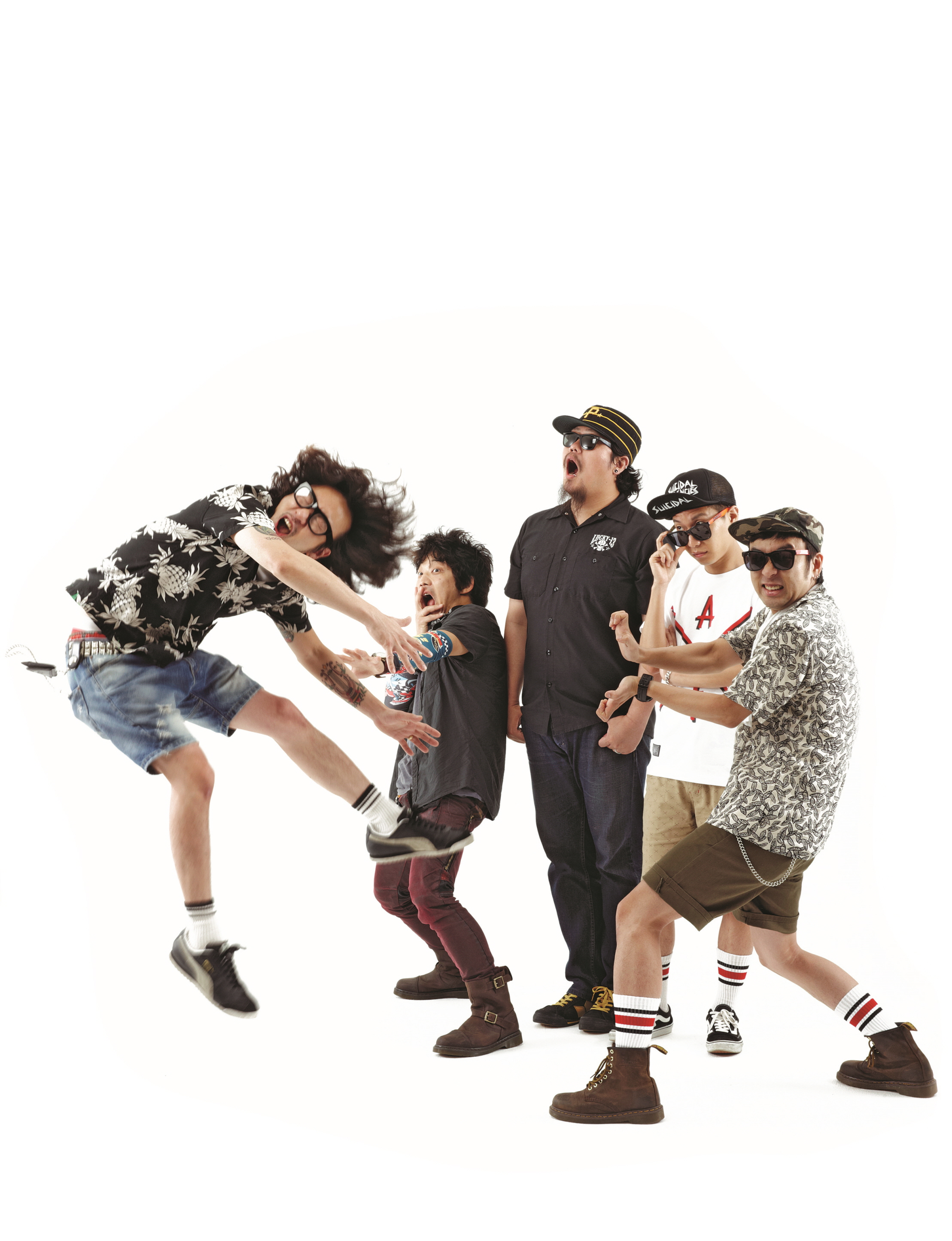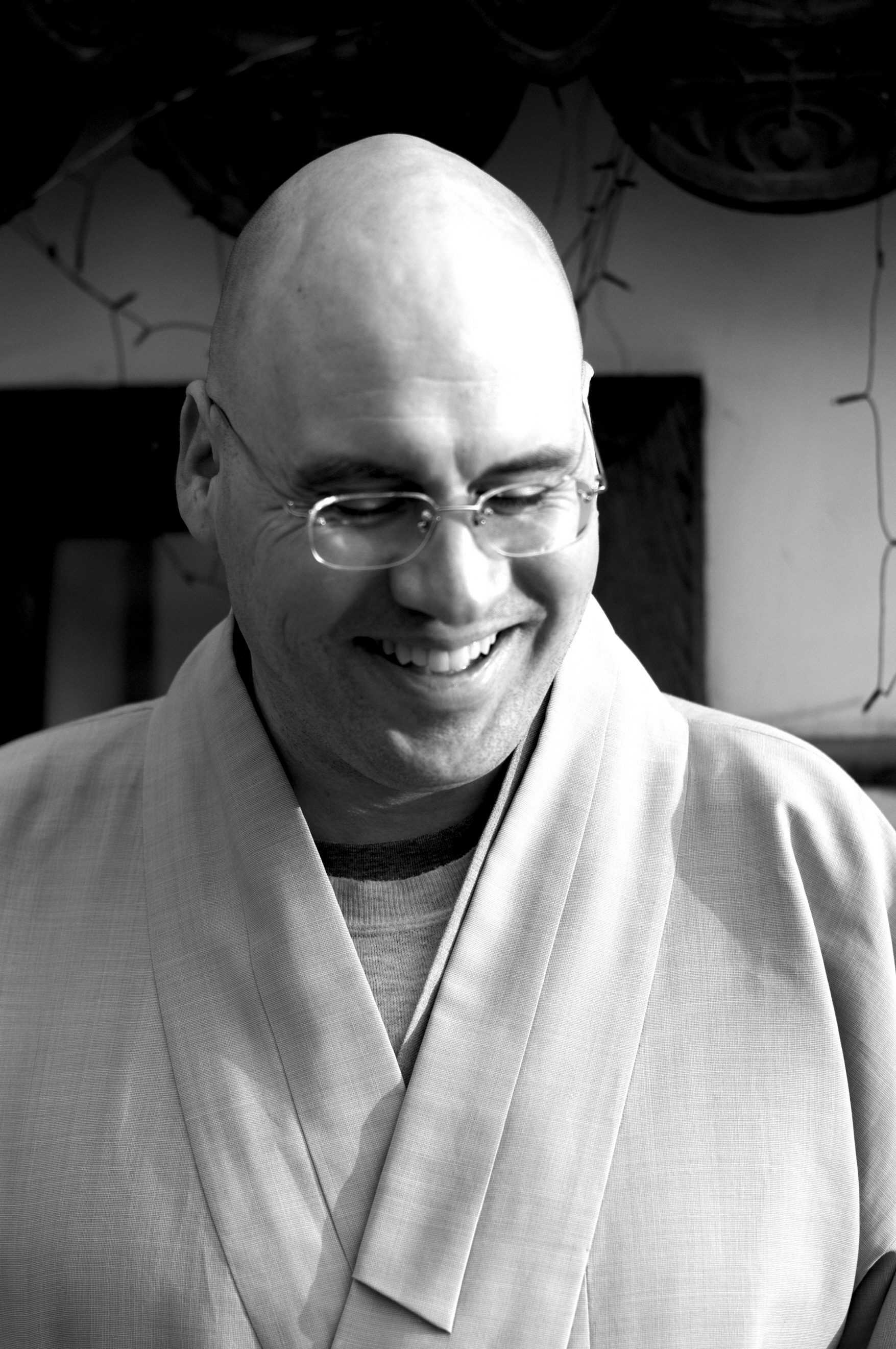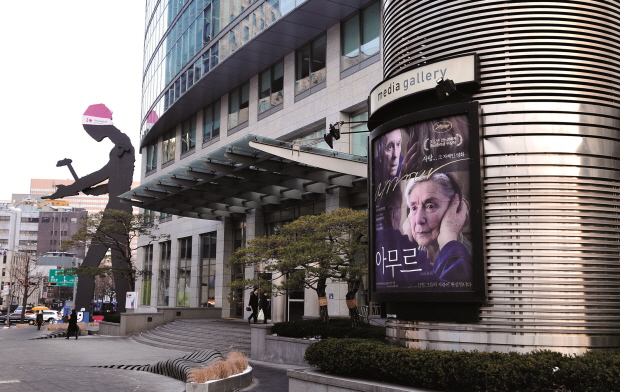[box_light]
CRYING NUT | 크라잉넛
The Korean punk rock band that broke the system is at it again.
Written by Doyun Kim
Photographed by RAUM Studio
On a rainy Thursday afternoon, the five members of Crying Nut, Korea’s most influential indie punk rock band, made their way one by one to our meeting location at a photo studio outside Hongdae. Bassist Han Kyung-rok a.k.a. “Captain Rock” arrived the earliest, on his motorcycle, followed by drummer Lee Sang Hyuk, who laughingly went about hanging up some unfinished laundry. Accordionist and keyboardist Kim In Soo walked in quietly, and vocalist Park Yoon Sik introduced himself from behind a pair of shades. Finally, guitarist Lee Sang Myun hurried in with an apologetic grin for his lateness, and we began our conversation.
These five are like any other group of friends. They joke, poke fun at each other, and together have a great time in any situation.
But unlike just any group of friends, the members of Crying Nut have changed the landscape of Korean music. They are known as the founding fathers of the Korean punk music scene and are not only the first independent band to make it but also the best-selling. Chances are, if you’re a fan of Korean music, you’ve probably already heard of them or have at least inadvertently heard their songs.
Meet the band
The history behind the band’s first get-together goes back a long way. Four of the members—all except In Soo—are childhood friends that grew up in the same neighborhood and went to elementary, middle, and high school together. Inspired by punk rock bands like Dead Kennedys, the Clash, and Fugazi, the group first formed to cover the songs they loved to listen to. In 1995, after a successful audition, they began performing at a Hongdae venue called Drug. It was also here that, four years later, they met their fifth counterpart, In Soo.
The group branched out into writing their own music and released their first CD Crying Nut in 1998. A single track of this album, “Maldallija” 말달리자 (which translates to “Speed up, losers” in English) spread like wildfire. It became so popular that, during a rock festival, when they unexpectedly decided to open their set with this song, hordes of fans that were caught off-guard at refreshment stands rushed toward the stage with sticks of food and beer cups in their hands in what the band fondly remembers as their “Braveheart” moment.
Thanks to this song, the debut album successfully sold 100,000 copies. This shook the music industry in Korea. When the band first started up 18 years ago, it was unheard of for any band or artist to become recognized through an independently produced record. The expected route was to go to music companies and strike a deal, but this process was filled with demands from over-opinionated producers— so they cut loose. The important thing for them was to make music the way that they wanted to, even if this meant that they had to start small.
“Joseon” Punk
Crying Nut blew the door wide open for the Korean music scene. First, they set an example for other indie artists and showed that it was possible to make it on their own, and then they also developed Korean punk rock. At the time of their first album, there was no mold for “Korean punk rock” that the group could simply fit into. Instead, they had to create their own space to accommodate the music they wanted to write. They call it “Joseon” punk— a term that refers to their unique, Korean tangent of punk.
Punk music often goes hand in hand with the image of an up-to-no-good kid that haunts every parent’s nightmare, or to be succinct, a punk. But the punk movement is much more than this. At its essence, punk is about venturing outside the mainstream and doing what you want to, not what you’re told to do. It’s the creation of a new identity.
“When we talk about punk,” Yoon Sik explains, “it’s not a genre, but a way of life.”
Thus, Joseon punk can’t be pigeonholed as simply a translation of the Western punk rock of the 1970s. Musically, Joseon punk follows whatever the group fancies—the classic punk rock that first inspired them as well as eclectic influences like reggae, hip-hop, heavy metal, Russian folk songs, and mariachi. There’s a distinct Korean flavor that also sets it apart.
Joseon punk is hard to pin down, as it seems to go in many directions, but perhaps it can be most succinctly defined as real, down-to-earth music. There is no hint of a commercial message, just musicians sharing creative, (extremely) fun, and relatable music with their fans.
Flaming nuts
Just this past June, Crying Nut debuted their seventh album, Flaming Nuts. In a nutshell, this record can best be understood as a reflection of the group itself. Much like their dynamic, it is lively and upbeat, incorporating a diverse, experimental element. The songs are very down-to-earth and real, indeed—about the pressing struggles of 30-something lives.
Each song tells a different story about day-to-day life, and the combination of all these stories make up the experience. “Give Me the Money” is about the lack of money when you need it, “LEGO” talks about becoming what you want with the support of your friends, and “Summer” reflects their desire to go out and have fun, because after all, it’s the summer. They still stick close to their Joseon punk roots to remind us that both life and music are not a one-size-fits-all kind of deal.
Compared to their older albums, there’s a lightheartedness to Flaming Nuts that they say came naturally. Fans say that Crying Nut only gets better with age, and this album is evidence.
“I think this album is going to be the most popular, because we’re better looking, too,” kids Sang Myun.
Buy their CDs on iTunes and keep a lookout for more concert dates to come.
FYI>
https://itunes.apple.com/us/album/flaming-nuts-deluxe-edition/id662012690















